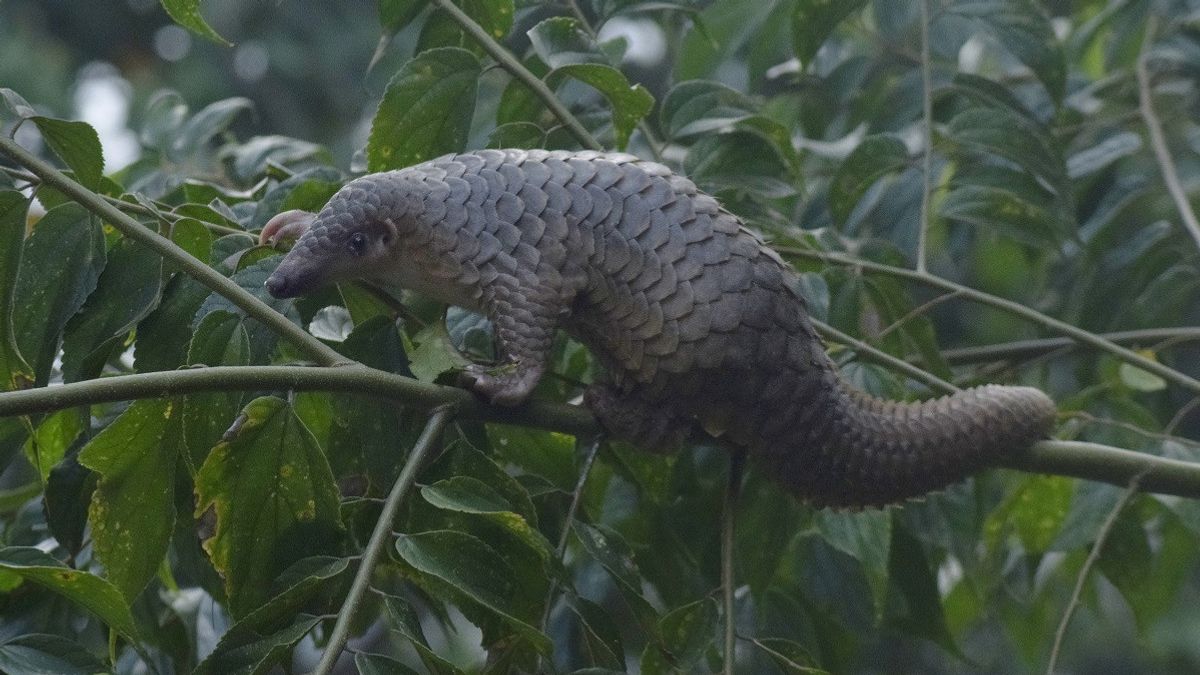JAKARTA - Despite the appearance of their reptiles, pangolins are actually mammals. They are trafficked by hunters around the world, for their coveted scales, used in traditional Chinese medicine. This illegal trade makes them vulnerable to extinction.
In June this year, conservation groups welcomed an announcement in China that pangolins had been removed from the official list of ingredients for traditional Chinese medicine. This step is considered by wildlife protection activists as a step forward, protection of pangolins.
However, several questions have been raised by the Environmental Investigation Agency (EIA) about the validity of the announcement. Although this is a step in the right direction to eliminate pangolins from the latest edition of pharmacopoeia (ingredient list referring to Chinese medicine). EIA is concerned that this may not translate into a total ban on the use of these species.
"It is not clear whether pangolins have also been excluded from a separate pharmacopoeia as an ingredient in an approved patented drug," the agency said, reporting on Euronews.

According to the EIA, if the approved patent drug containing pangolins has not been removed or altered from the list, this means pharmacopoeias will continue to promote and legitimize pangolin medicinal use.
As environmental activists have pointed out, this has happened before. Leopard bone and bear bile are no longer included in the main ingredient section of the pharmacopoeia, but are still listed among the ingredients for the patent drug. Therefore, their legal commercial use is suspected to continue.
EIA asked questions to clarify around this issue. Chris Hamley, EIA Senior Pangolin Campaigner, said the latest news about strengthening domestic pangolin protection in China is a positive result.
However, he added, this latest move must be supported by further actions and official announcements. The government must ensure that existing scale stockpiles are destroyed.

Present on earth since about 60 million years ago, the pangolin has been described by National Geographic as a shy and elusive animal, about the size of a golden retriever puppy. The scaly creature had tiny arms that were likened to a T-Rex.
Pangolins eat ants, termites and other food using their sticky tongue, because they do not have teeth. They are nocturnal and lead solitary lives, spending only time together to mate.
The scales that cover their bodies protect them from predators in the wild and if threatened, they will quickly curl up into a tight ball and use their sharp scaly tail as a form of defense. Pangolins can also give off an unpleasant odor, such as skunks.
Apart from being heavily traded from Asia, the sale of this animal from Africa has also increased, to meet the high demand in countries such as China and Vietnam. Apart from the scales for traditional medicine, the meat is also said to be delicious.
Various methods are used to protect these animals, for example, such as what was done by Save Pangolins and Born Free. Its numbers have continued to decline, making the animal's status change from Critically Endangered to Vulnerable on the red list of the International Union for Conservation of Nature (IUCN). Born Free, through raising funds for pangolin adoption of £ 3 per month, hopes to support the preservation of these animals.
The English, Chinese, Japanese, Arabic, and French versions are automatically generated by the AI. So there may still be inaccuracies in translating, please always see Indonesian as our main language. (system supported by DigitalSiber.id)













